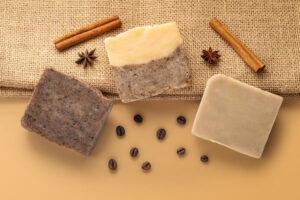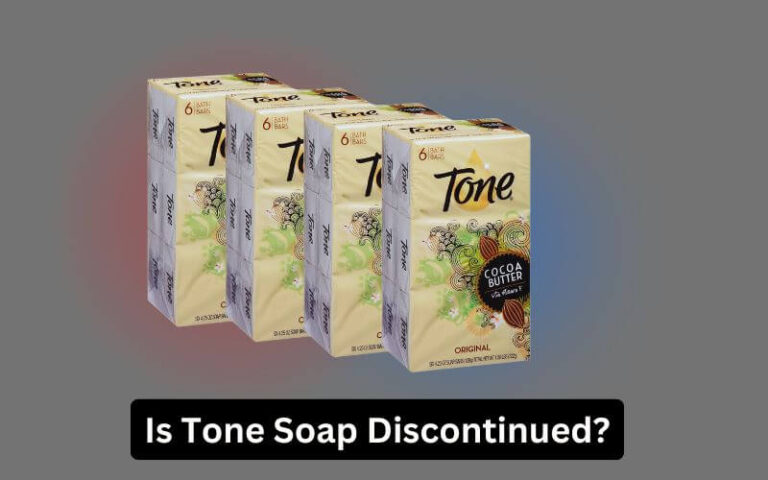For decades, Tone Soap, with its unique blend of cocoa butter and botanicals, has maintained a loyal customer base. However, recent rumors suggest that this beloved product might be discontinued. This blog post seeks to address these rumors, exploring whether Tone Soap has been discontinued, reasons behind such an action, and how it impacts consumers.
Tone Soap Overview
The journey of Tone soap began in 1954 when it was introduced to the American market by the Andrew Jergens Company. Originally known as Teone soap, it was renowned for its ultra-mild formula, making it a popular choice for families nationwide.
Dial Corporation acquired Andrew Jergens in 1968, subsequently gaining the rights to Tone soap. Under Dial’s ownership, the soap underwent a significant reformulation, introducing moisturizing ingredients like cocoa and shea butter that further boosted its popularity.
Is Tone Soap Discontinued?
Yes, it’s true. The rumors circulating around have been confirmed – Tone Soap has been discontinued. Several factors contribute to this speculation, including declining bar soap sales and the increasing popularity of liquid soaps and body washes. This announcement came as a shock to many, as the soap was still widely purchased and loved by a significant number of consumers.
The discontinuation was officially announced by the manufacturers, leaving many fans of Tone Soap feeling disappointed and let down. While the company promised to continue providing high-quality skincare products, the loss of Tone Soap has undoubtedly left a void that will be hard to fill.
Why was Tone Soap Discontinued?
The exact reason for the discontinuation of Tone Soap is not publicly available. However, there are a few potential factors that may have contributed to its removal from the market:
- Changing Consumer Preferences: Over time, consumer attitudes towards skin lightening products have shifted. Many people have become more aware of the potential negative effects of these products, such as skin damage and hyperpigmentation.
- Regulatory Changes: Governments and regulatory bodies around the world have become more stringent in their oversight of skincare products, particularly those containing ingredients that can be harmful to the skin.
- Shifting Market Trends: The beauty industry is constantly evolving, and new products and trends emerge regularly. It’s possible that Tone Soap was unable to keep up with these changes and became less competitive.
- Company-Specific Reasons: There may be internal factors within the company that led to the discontinuation, such as financial difficulties or a change in corporate strategy.

Impact on Consumers
The news that Tone Soap has been discontinued sent shockwaves through the consumer base. Not only was Tone Soap a popular choice among many for its unique blend of cocoa butter and botanicals, but it also stood out for its affordability.
Without a doubt, this decision has left a void in many households and personal care routines. The abrupt discontinuation has led to panic buying, stockpiling, and a surge in prices, leaving consumers feeling frustrated and disappointed.
You may also like:
Customer Reviews: Are There Any Good Bar Soap Alternatives?
If you’re looking for a replacement for Tone soap bar, here are some popular options that offer similar benefits:
- Dove Beauty Bar: A classic choice for many, Dove is known for its gentle formula and moisturizing ingredients.
- Ambi Cocoa Butter Cleansing Bar: This is a popular choice among many who have switched from Tone. It’s known for its moisturizing properties and gentle cleansing.
- Yardley London Cocoa Butter Soap: This soap is another great alternative, offering a rich lather and deep hydration.
- Cetaphil Bar: This fragrance-free bar soap is suitable for sensitive skin and provides a gentle, non-drying cleanse.
- Nivea Creme Soap: This soap is popular for its creamy texture and ability to moisturize the skin. It may not be as targeted for skin lightening as Tone Soap, but it can still be a suitable option.
Why is Tone Soap So Expensive?
Another concern for Tone Soap users is its rising price. Several factors contribute to this increase. First, the cost of manufacturing has risen due to inflation. Second, the reduced competition caused by the discontinuation of similar products has allowed for price hikes.
Third, shrinkflation, a practice where the product size decreases while the price remains unchanged, is also a factor. Lastly, the strong brand loyalty Tone Soap enjoys allows it to maintain higher prices.
Where to Find Tone Soap Bars Now?
Despite the discontinuation, there are still places to find Tone Soap Bars, albeit at a higher price. Online marketplaces like Amazon and eBay have listings from sellers who’ve stocked up on the product. Additionally, some local stores and pharmacies might still have residual stock. However, keep in mind that the prices have skyrocketed due to the high demand and limited supply.
Conclusion
The potential discontinuation of Tone soap may leave many consumers reminiscing about a long-standing household product. Its absence will surely create a gap in the bar soap market, presenting opportunities for other brands to fill.
However, until Dial Corporation releases an official statement, the future of Tone soap remains uncertain. Regardless, the rumors have reminded us of the importance of this simple bar soap that has been a staple in many of our homes for decades.
FAQs
Does Tone Soap Expire?
Tone Soap does not expire in the traditional sense, but it can lose its effectiveness over time. The active ingredients in Tone Soap can degrade over time, especially if it is exposed to heat or light.
It is generally recommended to replace Tone Soap after one year for best results. If you notice that your Tone Soap is not working as well as it used to, it is probably time to replace it.
What is Tone Soap Good For?
Tone Soap was a guitar care product that claimed to clean and protect guitars without damaging the finish. It was marketed as a natural alternative to traditional guitar polishes and waxes, and it was said to be safe for use on all types of guitar finishes.
Tone Soap was also claimed to remove dirt, grime, and fingerprints without leaving behind any residue. However, Tone Soap was found to contain harmful chemicals that could damage guitar finishes, and it was subsequently discontinued.
Does Dial Make Tone Soap?
No, Dial does not make Tone soap. Tone soap is a brand produced by Henkel, a multinational consumer goods company. Dial, on the other hand, is a brand owned by Colgate-Palmolive.
Both companies offer a variety of personal care products, but they specialize in different areas. Dial is primarily known for its antibacterial soaps and deodorants, while Tone soap is focused on skin lightening and beauty products.
What Ingredients Made Tone Soap Popular Among Users?
Tone soap was favored for its rich formulation, which often included ingredients like cocoa butter and vitamin E. These elements are known for their moisturizing properties, making the soap suitable for various skin types, including sensitive skin.


